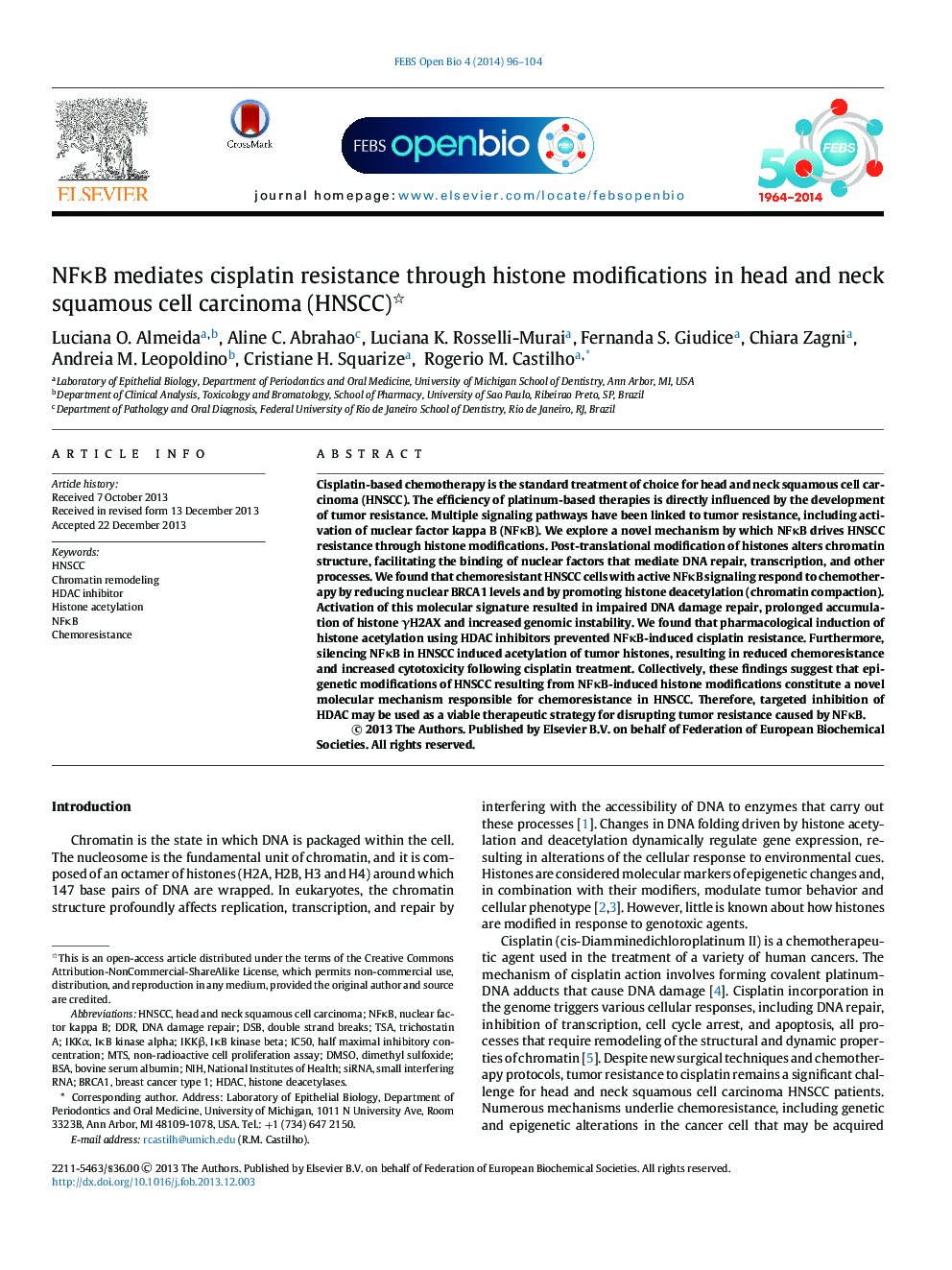| کد مقاله | کد نشریه | سال انتشار | مقاله انگلیسی | نسخه تمام متن |
|---|---|---|---|---|
| 1981663 | 1539420 | 2014 | 9 صفحه PDF | دانلود رایگان |

• Chemoresistant HNSCC cells have deacetylation of histones and active NFκB signaling.
• Histone deacetylation reduces BRCA1 levels and enhances genomic instability.
• Histone deacetylase (HDAC) inhibitors sensitize HNSCC to chemotherapy.
• NFκB signaling drives HNSCC chemoresistance by inducing histone deacetylation.
• NFκB inhibition results in histone acetylation and sensitizes HNSCC to chemotherapy.
Cisplatin-based chemotherapy is the standard treatment of choice for head and neck squamous cell carcinoma (HNSCC). The efficiency of platinum-based therapies is directly influenced by the development of tumor resistance. Multiple signaling pathways have been linked to tumor resistance, including activation of nuclear factor kappa B (NFκB). We explore a novel mechanism by which NFκB drives HNSCC resistance through histone modifications. Post-translational modification of histones alters chromatin structure, facilitating the binding of nuclear factors that mediate DNA repair, transcription, and other processes. We found that chemoresistant HNSCC cells with active NFκB signaling respond to chemotherapy by reducing nuclear BRCA1 levels and by promoting histone deacetylation (chromatin compaction). Activation of this molecular signature resulted in impaired DNA damage repair, prolonged accumulation of histone γH2AX and increased genomic instability. We found that pharmacological induction of histone acetylation using HDAC inhibitors prevented NFκB-induced cisplatin resistance. Furthermore, silencing NFκB in HNSCC induced acetylation of tumor histones, resulting in reduced chemoresistance and increased cytotoxicity following cisplatin treatment. Collectively, these findings suggest that epigenetic modifications of HNSCC resulting from NFκB-induced histone modifications constitute a novel molecular mechanism responsible for chemoresistance in HNSCC. Therefore, targeted inhibition of HDAC may be used as a viable therapeutic strategy for disrupting tumor resistance caused by NFκB.
Journal: FEBS Open Bio - Volume 4, 2014, Pages 96–104